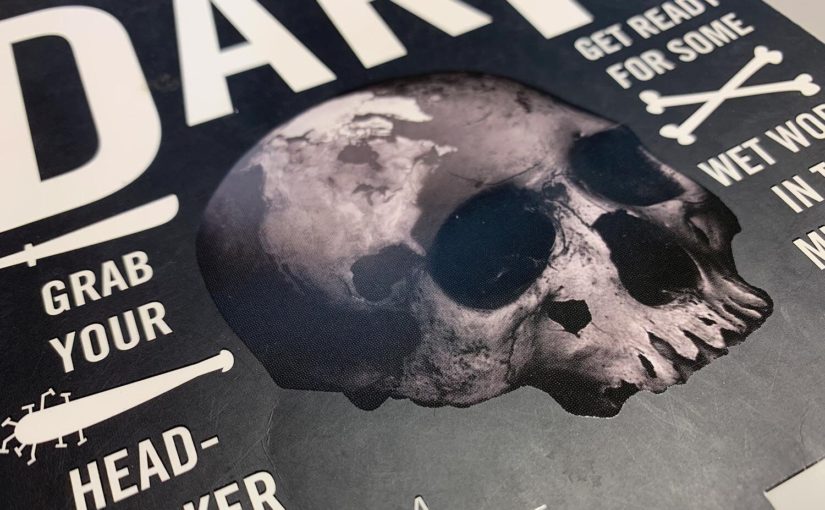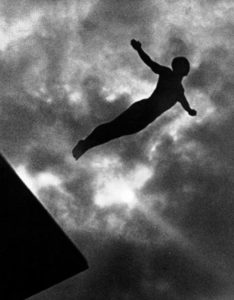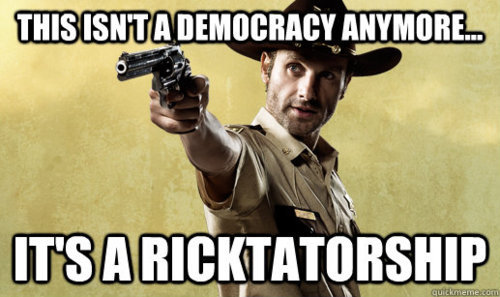Of course when I started seeing trailers and reading descriptions of the film adaption of Max Brooks’s journal of the zombie apocalypse, World War Z, I immediately jumped up onto my high horse and started penning angry screeds in the comment sections of Reddit. (Just kidding. I don’t use Reddit.) Why in the hell were they even calling this movie World War Z if exactly nothing was taken from the book but the title? The book World War Z is nerdy and wonky, very much what a serious military history geek would write about the zombie apocalypse with CNN on mute in the background. So, maybe the individual voices were a little same-same; Brooks’s take was refreshing in its long, global pan, broken out from the locked room scenarios of so many zombie narratives. Instead of the usual how will we survive tomorrow, it was a consideration of how society – societies – would respond to such a threat.
Admittedly, the book is a little bloodless – the snap gone out of recountings because we know the raconteur has survived – and I was expecting changes. Much of Brooks’s book simply wouldn’t work on the screen. I did have some fantasies about the film being about the soldier’s narrative. He pops up at least three times in the book, moving from the Battle of Yonkers – which is actually beautifully narrated, and a pretty biting criticism of the ways military tacticians refuse to adapt to changing realities – to a West Coast enclave, and then back out through the flyover states, reclaiming this grand America. The zombie herds like buffalo, the consideration of the in-fill towns and the feral domestic animals, the drudgery and mud-covered victories: all this would have worked on the screen. Alas, no mas.
World War Z, the film, opens with a languorous morning flipping pancakes and only occasionally tense domesticity. Gerry Lane is an ex-CIA investigator, clearly still in the recovery phase of adjustment to stay-at-home dad and unemployment. His kids are moppets, and while I think it might be indicted that his wife is a professional of some kind, this isn’t lingered on. The New York setting and the traffic snarl action pieces reminded me of Will Smith’s I Am Legend, but the New Yorkiness and generally elegiac tone is absent from the movie. Pitt’s Gerry Lane seems like someone who would be better played by Tom Cruise, whose asshole Ethan Hunt routine from the Mission Impossible movies might register stronger than Pitt’s surfer insouciance. Much as I generally like Pitt, here he lacked an edge that made his supposed backstory anything but narrative justification. I was in the CIA, like, I guess.
From here, the movie bops around the zombie apocalypse, running set pieces with the thinnest of narrative fiber between them. Some of the set pieces were honestly thrilling – like the zombies swarming over the Israeli wall, or some of the stuff in North Korea. Some of them felt like hey, what about an outbreak on a plane??? I felt twitchy about a wasted David Morse vamping through a toothless mouth prosthetic about Jews and how they never forget, although the chatty Jurgen Warbrunn – one of the few characters (sort of) from the novel – explains a little better what looks like unvarnished antisemitism in Morse’s explanations of the Israeli response. I liked the look of the androgyne Israeli soldier tasked to escort Lane out of Israel, but there wasn’t much more than a look to her character. All in all, the movie was the kind of contentless flash-bang that can be fun in the dollar theater on a Sunday, but will likely diminish on the small screen to the point of boring.
Rather than just complain about fast zombies, because honestly, that’s maybe the lamest criticism one can level at the zombie narrative, my complaints more have to do with the lack of viscera. (Seriously, I’ve been trolled one too many times by people exclaiming that fast zombies aren’t really zombies, like the taxonomy of imaginary creatures isn’t flexible enough to include a little sprinting.) But really it was the lack of guts that got me, because whatever other societal jibber jabber zombie narrative might capture, they can thrill because of entrail-rending zombie bouquets, the mob ripping someone limb from limb. They’re about physical fear, body horror, our fear of the inevitably declining meat-sack we all live in. It’s not about the fear of death, but of decomposing life. Blood splatter was notably absent in World War Z, which seems a crying shame.
But that’s not even what I want to note about this movie. What I want to talk about is Gerry Lane’s wife. I’ve noted before that zombie stories deal with domesticity in a weird way, and the housewife, as the embodiment of domesticity, ends up bearing the brunt of the weirdness. And maybe I should just take a minute to define terms. Yes, obviously, Lane’s wife is working outside the home, and Lane himself is playing emasculated parent to her harping worry. There’s a quelling quality to their marital interactions: you shouldn’t want to go back out into that manly, war-torn landscape, Gerry. No, no, of course I don’t. I’m using housewife as a shorthand term for the straight, white, middle class momming set, working or not, who regularly are the focal point of the Mommy Wars, the cultural wars, and apparently, now the zombie wars. The housewife is a category more mythic than actual, but she’s got teeth like any other monster, and sometimes she sprints.
But when the fit hits the shan, it’s Gerry’s war skills that nurture domesticity. Gerry mansplains to the Hispanic family that they have to move to be safe in crisis, and they don’t listen, bringing moppet count up to three when their son takes the advice they don’t. By the time the Lane family makes it to the aircraft carrier, Mrs Lane is in full on helicopter mom mode, hissing at Gerry and the UN dude that they should take their conversation about zombies outside lest they upset the children. I punched my husband at this point in the film — in the arm, jeez — why wouldn’t she want to know wtf was going on? Fair enough, don’t freak out the kids anymore than you have to, but given that they were pretty much unconscious in every scene from here on out, maybe you have a shred of curiosity about anything but making sandwiches? Why would a professional woman just wring her hands and push her sleeping babies’ hair out of their eyes? You’re in danger of getting chucked from the relative safety of the carrier, why don’t you offer up whatever hastily sketched skills you have?
Mrs Lane’s story reaches a nadir when she calls Gerry in a panic while he’s on a dangerous op in North Korea, the squeal of the phone alerting the zombies to their locale. Life pro tip: set your cell phone to buzz when in the zombie apocalypse. (Also: cell phones work?) His world-weary decision not to tell her that her domestic panic got a lot of good men killed – good men! – just exhausted me. Broads, man, amiright? Don’t text me right now because I’m in a v. important meeting. Mrs Lane ends up as this tragic impetus for action, inert and often interfering, but without agency or motivation beyond the cheesy invocation of family. Someone smacks down Gerry near the end when he invokes it right back — I watched the thing that became my wife kill my children — but this is a weird conversation, bros ruminating on their obligations that are little more than luggage. Think of the children! Because that’s all we can do!
I don’t know. It’s late, and I’m tired, and maybe I’ll be back to bloviate tomorrow. I thought WWZ: the Movie was fine when people were running and screaming, but it wasn’t much more than that in the end.
Oh, and also, the scene where Gerry pops open a Pepsi machine and the cans all rolled with their labels out cracked my shit up. Pepsi: The Choice of the Undead! Pepsi quenches your thirst for brains.
 The idea of
The idea of 








